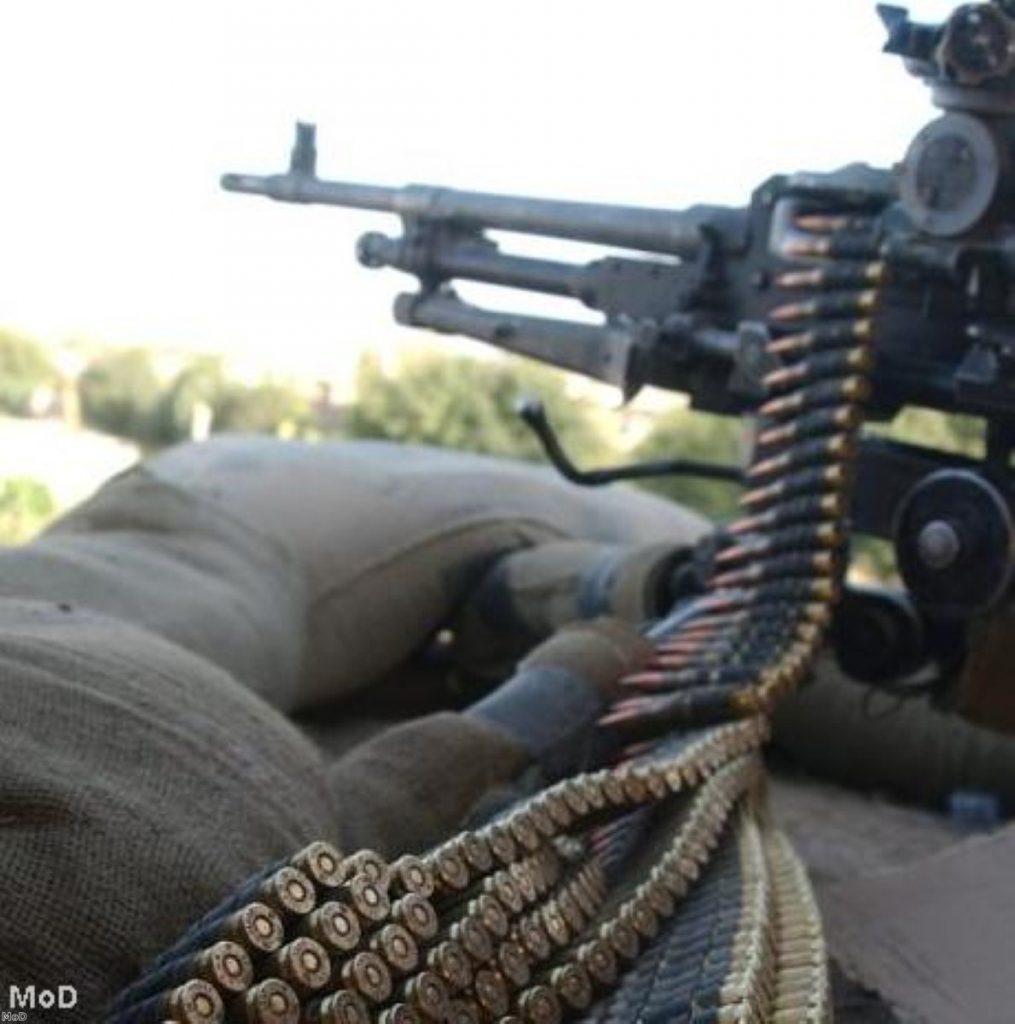Govt retreat on army cutbacks
By Emmeline Saunders and Alex Stevenson
The government offered a “minor concession” on Territorial Army (TA) training cuts following concerns that soldiers would be inadequately prepared to fight without proper training.
Armed forces minister Bill Rammell announced he had found £2.5 million to ensure at least one TA drill night a month in the current financial year.
But shadow defence secretary Liam Fox dismissed the move as a “shambles” and called on the government to reverse its decision to cut the core budget of the TA by £20 million.


Mr Rammell defended the government’s decision to end weekend and night drill training for TA soldiers.
The cuts outraged serving troops, who asked how reservists could have confidence in their equipment or ability to fight in Afghanistan without adequate preparation.
Scores of reservist soldiers threatened to leave the force, which already suffers a shortfall of 6,000.
“For many the TA is a habit,” Dr Fox added. “Break the habit, break the TA.”
Mr Rammell told the Commons that “tough choices” had to be made and pressed that no TA soldier would be deployed unless the Army was satisfied they were ready.
He added: “As a government, we do listen,” he added, to laughter from the opposition benches.
“Therefore the secretary of state has decided on a small adjustment… to ensure continuity for those not immediately deploying to Afghanistan.”
Dr Fox argued that pre-deployment training was supposed to “augment” and not “supplant” routine TA training.
But Mr Rammell hit back, saying: “It ill behoves the party opposite, who let us remember are not proposing one additional penny of expenditure within the defence budget, to urge us to prioritise efforts in Afghanistan and, as soon as it leads to difficult decisions, to cry foul.”
The TA provides between six and ten per cent of troops for the British army and there are currently around 500 TA soldiers serving in Afghanistan.
As a result of the cuts, TA recruits will no longer be able to fire live rounds on the training ranges or drive tanks more than nine miles a month due to the costs involved in running the vehicles.
Soldiers will also be banned from training in gas chambers to prepare for chemical warfare, and will not be able to test if their respirators work.
Critics of the cuts have argued savings of £20 million are miniscule in comparison to the expertise and willingness to serve the country that would be lost.









